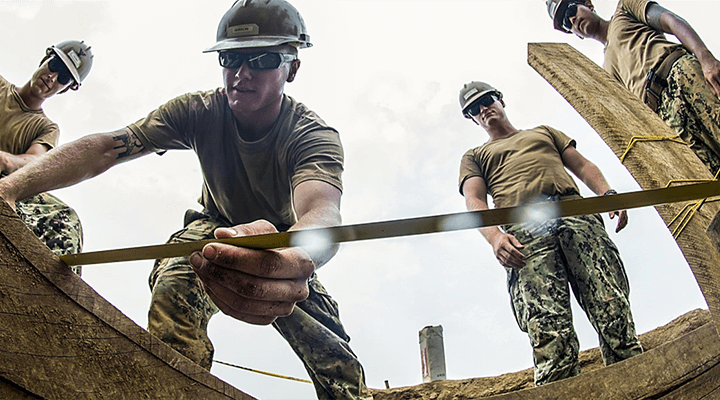On January 12, 2010, Port-au-Prince, Haiti, suffered a catastrophic earthquake that left tens of thousands of people dead and vast stretches of the city and surrounding communities obliterated. The immediate aftermath saw shantytowns spring up for the hundreds of thousands of suddenly homeless, and the country was beset by a critical shortage of medicine, fuel, and water. Looting and disease followed, and continuity of government faltered. It was one of the worst natural disasters of the 21st century, and despite a years-long disaster response, the country has yet to recover.
Former Marines Jake Wood and William McNulty wanted to help. They recognized in Haiti situations and conditions similar to those found in Iraq and Afghanistan, and with a handful of other veterans and first responders, joined the effort and provided aid to some of the most dangerous and underserved camps in Haiti. In the process, they gave birth to Team Rubicon, a new kind of disaster response organization that helps crisis-stricken areas by leveraging the experience, discipline, and leadership of military veterans.
The organization has flourished in the years since, providing aid and relief in the aftermaths of tornadoes in Texas, wildfires in Tennessee, and flooding in Louisiana, among other places at home and around the world. In 2017 alone, they’ve performed 33 operations in response to natural disasters and severe weather.
joining the post military service roster
Today, Team Rubicon has a roster of 47,000 volunteers across the country. According to David Burke, vice president of programs and field operations for Team Rubicon, that number is growing by about 200 per week—a level that has remained consistent for the last five years. Volunteers are grouped according to the regional structure of the Federal Emergency Management Agency, and individual regions are further organized by locality.
“There are volunteer leaders at city, state, and the regional level,” he tells ClearanceJobs, “so as soon as an event is identified and assessed that there is a need for Team Rubicon to support, we’ll deploy local leadership to interface directly with either the volunteer organizations active in the disaster, or the local jurisdictional authority that’s overseeing and coordinating response efforts.” Task forces from Team Rubicon augment the disaster response, providing everything from damage assessments to direct support, which might mean structural repair to preserve a home’s habitability, debris clearance, or structural demolition, which can help mitigate the cost of reconstruction.
While anyone with relevant experience can join the organization, veterans are its backbone, bringing with them a “bias for action”—they see something wrong, and they want to make it better.
“The reason veterans are uniquely suited to serve after disasters, or in preparation of long term recovery from disasters, is that every veteran of the current conflict—the post-9/11 veteran—has volunteered to serve. They raised their right hand completely voluntarily. That volunteerism, that sense of service, doesn’t disappear after you take the uniform off,” says Burke.
Military service provides young men and women with a chance to lead at a very young age, and after veterans transition to civilian life, groups like Team Rubicon allow them to again flex those leadership muscles.
“Many military veterans come home after leading five or twenty-five or one thousand other military members, to roles that are significantly smaller in scope even down to individual contributor,” says Burke. “An opportunity to exercise that leadership is usually pretty energizing.”
A PARTICULAR SET OF SKILLS
The same skillset that allows an army to build, take, hold, or run a small city also allows veterans, properly organized, to respond to disasters, engage locals, and rebuild population centers. Among the occupational specialties of the military are engineers who know how to erect or demolish buildings, medics, water purification experts, and logisticians.
Burke knows firsthand the importance of logistics, having served as a Marine Corps logistics officer for five years. Logisticians, he says, “can coordinate response efforts, which in a disaster environment, it’s just as critical to have what you need when you need it as it is to not have stuff that’s there too early, or in too high a volume. Detailed logistics planning is really important.”
He points also to an overlooked but vital aspect to national disaster response: cultural sensitivity. “As much as we don’t always think about it, the fifty United States are fifty very different states, and the ability to work with populations across the whole country is important.”
Veterans, many of whom are experienced in counterinsurgency, understand how to communicate with local populations in a nuanced and thoughtful way.
The commitment of the organization depends on the availability of its volunteers, and its growth permits more flexible responses.
“Part of driving a volunteer organization is remembering that everything we do is based on the volunteer’s time and availability,” says Burke. “Most of our volunteers have full-time jobs, and a lot of them have families and are in school.”
Veterans, first responders, and others who might be interested in joining Team Rubicon can do so at teamrubiconusa.org.



